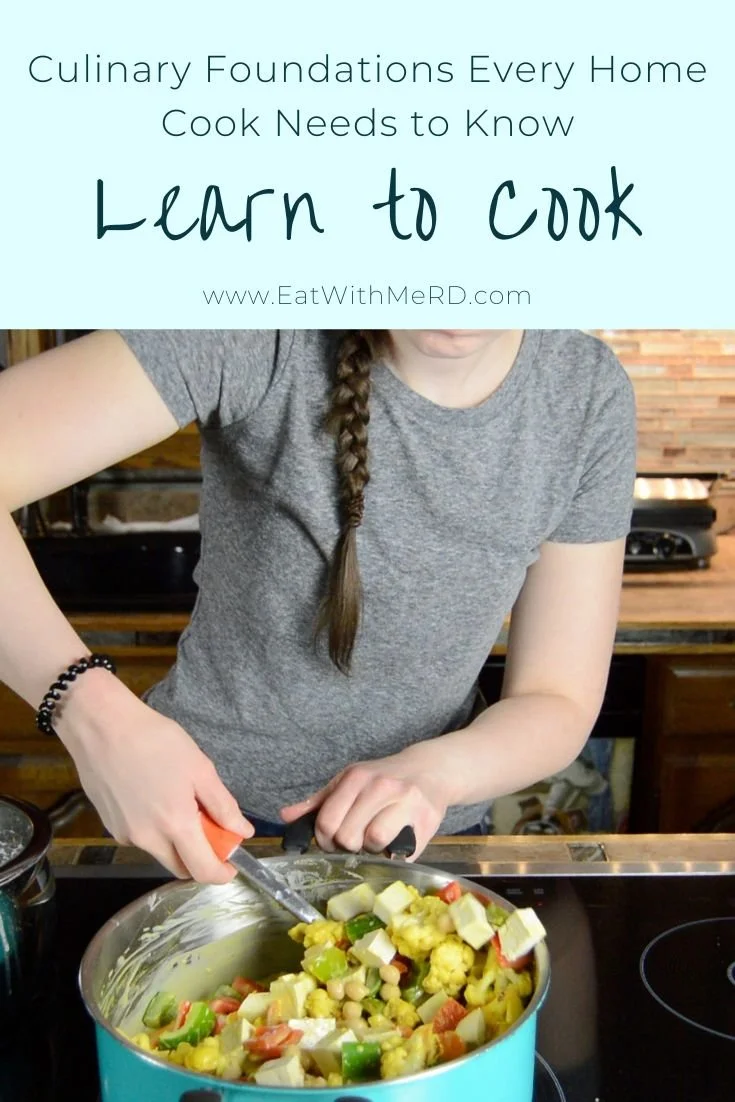Culinary Foundations Every Home Cook Needs to Know — Learning to Cook
Culinary Foundations Every Home Cook Needs to Know — Learning to Cook
If you make your own meals, you are a home cook. Maybe you feel super comfortable in the kitchen. Maybe you don’t. Knowing a few basics, however, can help you to feel confident in the kitchen and allow you to create dishes that you enjoy.
Recipes are a great tool. I post quite a few on here and I personally spend a lot of time reading or looking them up myself. And while they are helpful, they can also be intimidating. Have you ever skimmed a recipe, been missing an ingredient (no matter how minor it seems...like a spice, or you only have canola oil and not the olive oil that the recipe lists) and skipped making it altogether?
Now if it’s a major ingredient, like the peanut butter in peanut butter cookies you’re probably going to have to make something else or make a trip to the store, but if it’s something like black beans in a soup and you have a different bean or some lentils on hand, you can probably substitute them for one another without too much of a fuss. Or if you have 4 out of the 5 spices listed in a recipe, you can probably make that recipe without missing that fifth spice too much.
Having an understanding of the principles of cooking and different cooking techniques helps you cook better. You can whip up something quick on a weeknight and not stress about each and every detail of a recipe. When you know the foundations, you can use recipes as a guideline and adjust as you go if you need to.
Here are a few kitchen skills and basic cooking principles that everyone should have a grasp on. We will dive into each of these in much greater detail in the posts to come.
Knife skills
Cooking methods (e.g. roasting, sautéing, steaming, baking)
Creating flavor
Cooking with whole grains
Cooking beans and legumes
Why is it beneficial for everyone to have the most basic culinary foundations?
It allows you to be comfortable in the kitchen.
It allows you to follow a recipe if you prefer and feel at ease instead of feeling stressed to make things perfect.
It allows you to grab ingredients from your cupboards without a recipe and make a delicious, mouthwatering dish (or at least one that tastes pretty good).
It allows you to make changes on the fly and adjust if things don’t go according to plan (did you saute those veggies a little too long? -- that’s okay because knowing the basics helps you feel comfortable and enables you to make do with what you have).
It allows you to look at a recipe, know you don’t have one (or even a few) of the necessary ingredients, and feel confident enough to make some adjustments with what you do have on hand.
It allows you to save time when you know the basics.
It expands your repertoire of dishes that you feel confident making so that you don’t get bored eating the same old thing on repeat.

